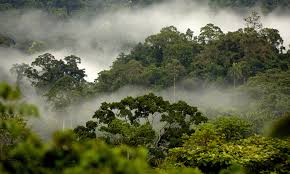The Nigerian government has launched the Net-Zero Nature-Positive Project (NZNP) as part of its efforts to address climate change challenges as well as achieve its net-zero emissions target by 2060.
Speaking at the NZNP inception workshop, the Director of Forestry, Federal Ministry of Environment, Halima Bawa-Bwari, noted that the project marks a pivotal moment in the collective journey toward a climate-resilient and rich in biodiversity and inclusive in its development.
Bawa-Bwari said that through the NZNP project, Nigeria would strengthen institutional coordination and boost biodiversity, restore degraded ecosystems, and unlock investment pipelines that prioritise nature-positive, low-carbon development.
“NZNP project offers a unique opportunity to address these challenges in an integrated and transformative way.
“Today marks a pivotal moment in our collective journey toward a future that is not only climate-resilient but also rich in biodiversity and inclusive in its development.
“Nigeria’s commitment to a net-zero, nature-positive future is not just aspirational, it is grounded in action from updating our newly submitted Nationally Determined Contributions (NDCs).
Read also: CSOs reject water privatisation, seek more investment to tackle climate crisis
Bawa-Bwari stated that the NDCs would reflect more ambitious climate targets, and actively investing in nature-based solutions that deliver both mitigation and adaptation benefits.
“Our efforts should go beyond emissions reduction. This programme represents a powerful platform to accelerate those efforts,” she said.
Also speaking, Ms. Elsie Attafuah, the United Nations Development Programme (UNDP) Resident Representative in Nigeria, said that NZNP is a movement that reflects Nigeria’s bold commitments to achieve Net Zero emissions by 2060.
Attafuah, who was represented by Mr. Blessed Chirimuta , the Deputy Resident Representative of UNDP, added that NZNP project would conserve 30 per cent of Nigeria’s land and marine ecosystems by 2030.
She said that the project would ensure that the Niger Delta, embed environmental accountability and to channel investment toward green growth.
Attafuah stated that climate change is already disrupting lives and livelihoods, biodiversity loss is accelerating, and vulnerable communities are bearing the heaviest burdens hence the urgency is real.
“The Niger Delta, especially Rivers and Bayelsa, stands at the front lines of these challenges.
Story was adapted from Environewsnigeria.
